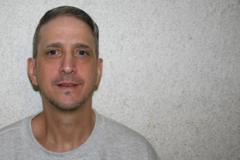HOUSTON — The Texas Court of Criminal Appeals has once again paused the execution of Robert Roberson, who was set to be the first person in the U.S. executed for a murder linked to shaken baby syndrome. This follows a series of legal battles since 2016 aimed at proving his innocence.
Roberson was scheduled to be executed on October 16 for the death of his daughter, Nikki, but his legal team was able to secure a stay based on Texas' 2013 'junk science law.' This law allows those convicted to seek relief if the scientific evidence used against them is found to be dubious.
The appeals court's decision comes in light of new legal and scientific developments suggesting Nikki's death might not be due to abuse but rather illness or accident. This stance is backed by expert analyses from independent pathologists disputing the original autopsy findings.
The case has renewed debates about the implications of shaken baby syndrome diagnoses, with some experts arguing that the science surrounding it has advanced and warrants a fresh examination of past convictions. Advocates for Roberson, including a bipartisan group of Texas lawmakers, are pressing for a new trial, citing wrongful convictions linked to outdated scientific understanding.
Despite the stay, Nikki's half-brother remains adamant that Roberson was responsible for her injuries and expresses disappointment over the ruling.
This case highlights a critical intersection of legal justice, medical ethics, and the evolving landscape of scientific understanding in criminal proceedings. Roberson continues to assert that he never harmed his daughter, as efforts to strengthen his case for a new trial continue.

















